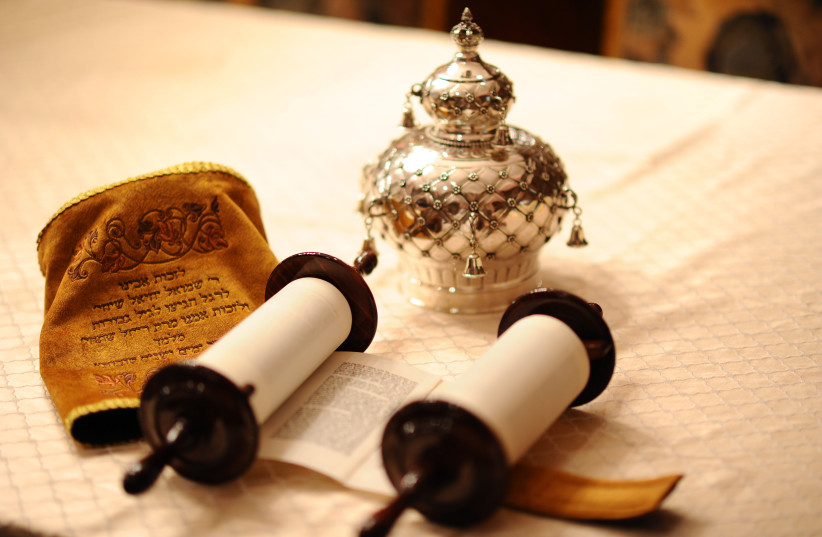There is an obvious question about the plague of darkness that arises with no other plague – why didn’t the Egyptians just stop it?
When locusts are swarming in the sky, or hail is pelting the ground, human beings are helpless. You cannot trap every frog that infests the land. But we all know how to counter darkness – light a candle.
In 1994, a major earthquake struck Northridge, California. I lived in nearby Los Angeles, and the quake was felt over the entire region. It struck at 4:30 a.m. First came a giant rumbling sound, and then the world started to shake. After what seemed an eternity of rocking (in reality about 20 seconds), everything was dark.
In an era before cellphones, if one was without a flashlight (as was most everyone in the neighborhood apparently), the world was truly dark. Not a porch light, not a streetlight. It reminded me of the title of William Manchester’s book about the Middle Ages A World Lit Only by Fire. People poured onto the street and waited for the sun. If you had no candle, there was only darkness.
For Egypt, for the first time, this was a plague that gave a taste of slavery – for three days no Egyptian “could arise from his place” (Exodus 10:23). Why did they not seek out fire?

A deep answer comes from a famed Sephardi commentator and kabbalist. When, later in the same verse, it says that the Israelites “enjoyed light in their dwellings,” the Or Hahayim says it could mean light in the Egyptians’ dwellings. There was light to be seen, but the darkness was not in the atmosphere; it was in the Egyptians.
ONE WAY the Egyptians may have been afflicted is a simple inability to see those unlike oneself.
In 1915 the philosopher William James wrote an essay, “On a Certain Blindness in Human Beings.” The essay concerns “the blindness with which we all are afflicted in regard to the feelings of creatures and people different from ourselves.”
Part of the Torah’s emphasis on the stranger is to alert us to the reality that we do not always understand the emotions and aspirations of those unlike ourselves. We are inclined to turn away and ignore them. People of a different ethnic, political or social group become invisible and irrelevant to us, “not our kind of people.” The Egyptians were blind to others.
Blindness sometimes arises from accumulation. The Egyptians had things the Israelites did not. The Rabbis comment that the blindness was the “thickness of a gold dinar” – that is, a gold coin. (The Torah Temima says this was like a cataract over the eyes of the Egyptians, keeping faith with the interpretation cited above of the darkness being an attribute of the Egyptians, not the atmosphere.)
This reminds us how easily wealth can blind us to the plight of another. Several years ago I wrote about this phenomenon: In studies, people in big cars are more likely to ignore pedestrians, and the wealthy give a smaller percentage of their money to the poor than those with far less.
This is not because bad people make money, since you can even create this bias artificially with monopoly money in a game. Rather, wealth insulates people from need and from dependence. Those among us who are fortunate must battle against that tendency to allow the gold dinar to blot out the suffering of others. Judaism is designed to combat this tendency in people by mandating tzedakah.
Finally, there is the simple human reality of being trapped by one’s own narcissism and refusing to actually see the other. The Mishna asks, What time do we begin praying in the morning (literally, reciting the shema)? The answer is – when one recognizes the face of his friend. In other words, we turn to God through acknowledging the face of another human being.
In Egypt, in a place where there was no God (though there were many “gods”), the plague of darkness dramatized the extent to which people could not see each other – not because they were strangers, but because each one could not overcome self-absorption.
It is a darkness that must be overcome every day.■
The writer is Max Webb senior rabbi of Sinai Temple in Los Angeles and the author of David: The Divided Heart. On Twitter @rabbiwolpe.
